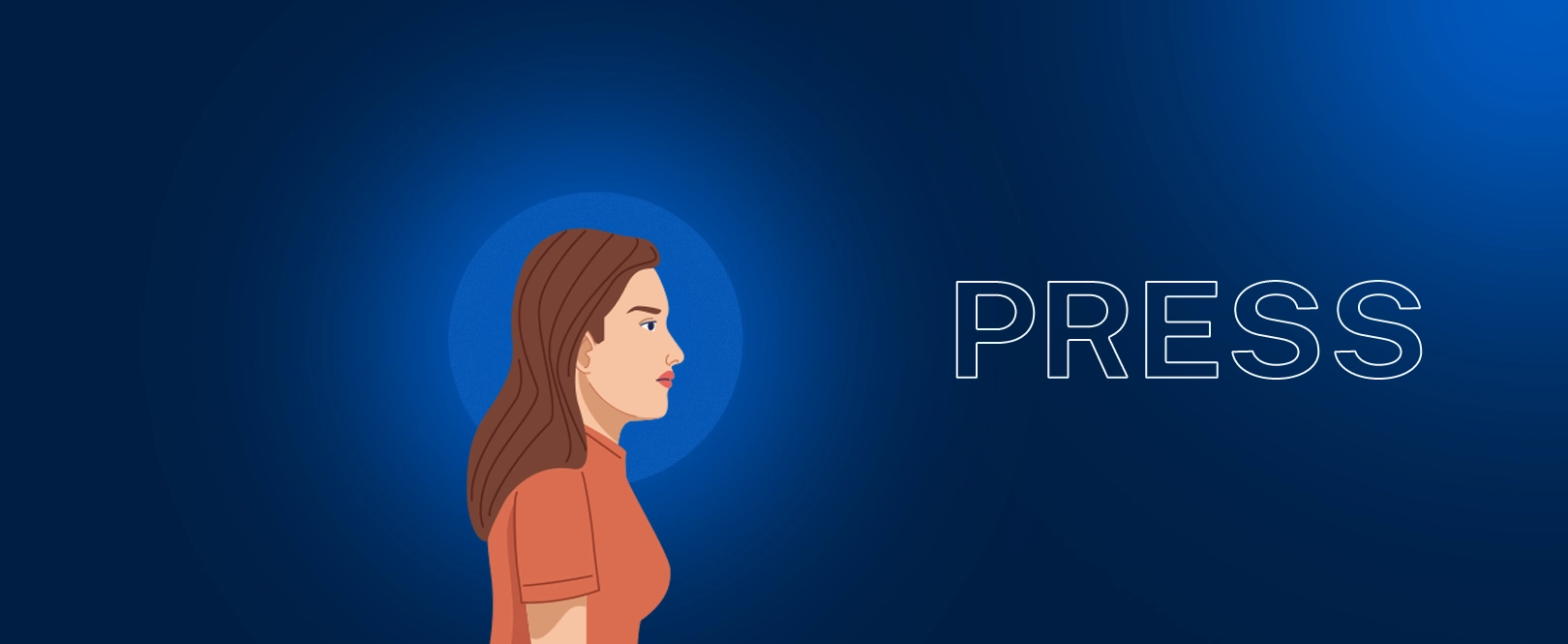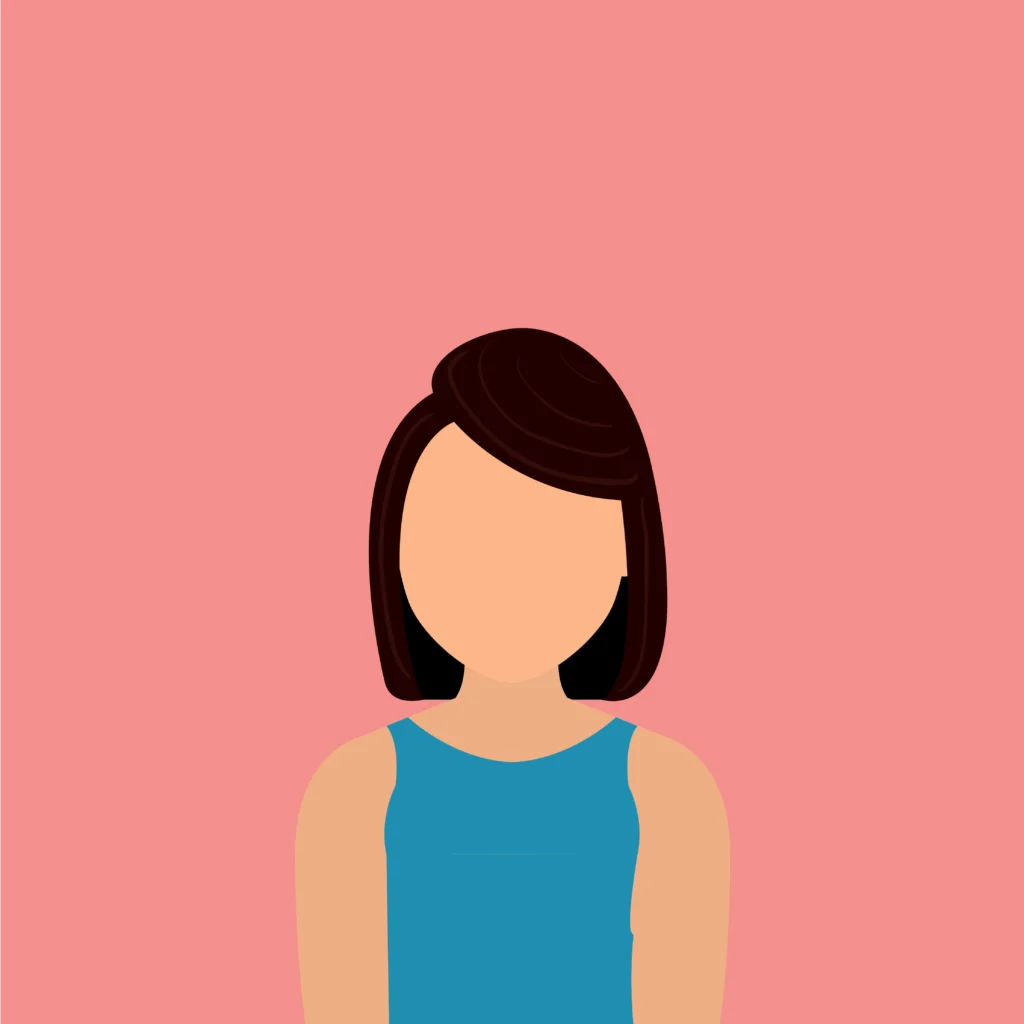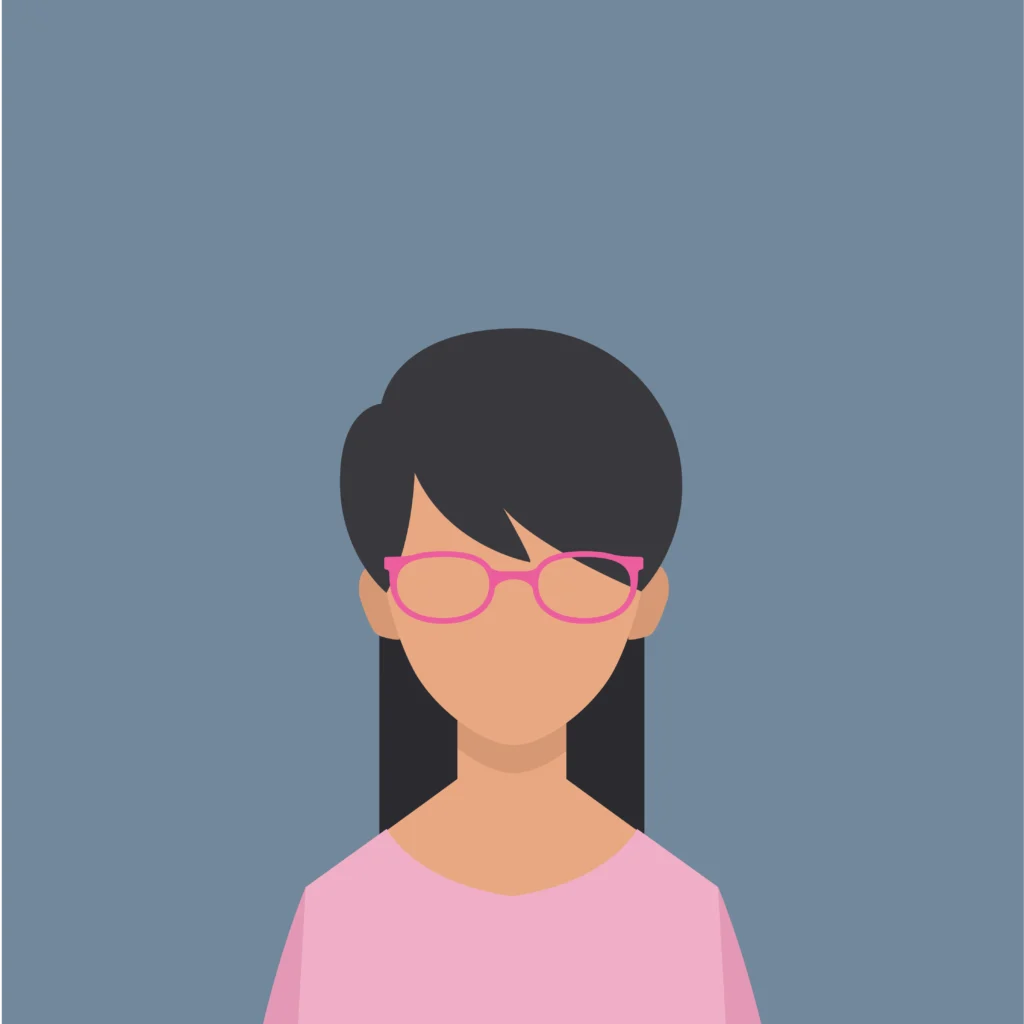
Kurdish Women in the Field of Media and Their Role in Advancing Gender Equality
Director’s Special Note
In the early 1990s, I had a job that required me to frequently interact with journalists from around the world. Majority of these journalists crossed the border into the northern part of Iraq, currently called Iraqi Kurdistan Region, through a checkpoint between Türkiye and Iraq. Due to the absence of true representation of Iraqi border authorities on the border because of the political situation culminating from the aftermath of the popular uprising, and the mass exodus of Kurds to neighboring countries when the uprising fell apart, all these journalists entered Iraq essentially illegally albeit through proper paperwork offered by the Kurdish authorities ruling the region.
Women made up a good portion of these journalists. The topics were hot, the news-rich environment was enticing, and the excitement of writing about a people that was not very well known to the outside world, despite being the victim of genocide and chemical attacks, was enough incentive for the ever-steady flow of journalists.
On an early end-of-spring morning of 1994, I was to accompany one of these journalists, a British female who was reporting for an acclaimed broadcasting station, from Erbil to Sulaymaniyah in order to conduct an interview with Mr. Jalal Talabani, the then Secretary General of the Patriotic Union of Kurdistan (PUK) who later in life served as the first Kurdish President of post-Saddam Iraq.
She and I sat in the back of a Landcruiser, latest model at the time, with us was a driver and a bodyguard sitting shotgun. We also had a couple of armed guards, Peshmerga, in the third-row seats. It was a time when there was an active war between PUK and one of the Kurdish Islamic movements. As we drove through a wide-open valley, equidistance between the two main cities, one of the tires blew out. We stopped safely, they checked the spare tire, it was a wrong tire, the bolts did not line up with the holes on the wheel. Panic set in, this was an area known to harbor more Islamists than PUK. The guards spread out on hilltops as the driver began calling the main base for help through his long-distance walkie talkie.
We sat there in the car, chatted about the whole situation, and the conundrum that we found ourselves in. I asked my female travel companion if she was scared. I was trying to offer assurances that help will be on the way soon. She said “No.” She completed her response by saying “I came here fully knowing the risks, and have been to similar places like this, even more serious situations.” I guess, as I was trying to keep the conversation going, I asked what motivated her to go to such risky places. “I like to write about Kurds. Also, I want to become a career journalist, and for women to be able to do that, we must take extra risks to prove ourselves.”
Her response stayed with me. It did not make much sense at the time. I, being from the Middle East, always thought that gender equality was an essential part of European and Western societies and democracies. Clearly, I was very ill-informed.
As I was reading the responses to the interviews conducted by iNNOV8 on the topic of Kurdish women in journalism, answers of similar nature jumped out at me. The memory of that late-spring unplanned stop in the 90s, and the answer to the impromptu question I posed to the British female journalist, came rushing back, this time 30 years more mature.
As Kurdish women struggle to carve out their own corner in the world of journalism, they are certainly not alone. There are still many female journalists around the world who are advocating for their equal recognition within media outlets and in journalism establishments. This focus group was selected for the purpose of understanding the challenges that face women working in Kurdish media and journalism. As it may apply to women elsewhere, I invite our readers to keep the discussion alive, advance the dialogue, write to us with your ideas and suggestions. Let us debate every aspect of the importance and necessity of equality between female and male journalists around the world.
Imad A. Farhadi
Executive Summary
This interview-based research sheds light on the challenges that women in the Kurdistan Region of Iraq (KRI) face as they work to promote gender equality through their work in Kurdish media. It draws attention to the main obstacles that women in the media must overcome in order to advance gender equality. Due to a dearth of data and documentation regarding women's contributions to gender equality in Kurdish media, iNNOV8 spoke with a number of Kurdish women employed in a range of roles within the media industry to learn about their experiences and address the key obstacles that may prevent them from realizing gender equality.
Background
The disparity in women’s participation and representation in the global media is a common theme. A gendered aspect of media is a necessary first step to understanding women’s role in advancing gender equality while working in the media. In the media landscape, promoting gender equality cannot be divorced from the growing complexity of the digital sphere. This is because, in the modern digital era, new layers of specific-gender issues have been introduced. Women working in the media face gender-specific challenges that hinder the advancement of gender equality, such as cyberbullying or online abuse.
This paper examines the contribution of Kurdish women to the media in the Kurdistan Region of Iraq (KRI) in advancing gender equality. By navigating the media landscape with a gendered lens, iNNOV8 brings to attention the importance of identifying gender-specific issues that face Kurdish women media professionals in advancing gender equality in the KRI. The absence of organizational gender equality policies is a persistent obstacle that hinders the ability of women media professionals in Kurdish society to contribute to the closing of the gender gap. Historically, the Kurdistan Region has been a pioneer in promoting greater female representation and participation in all media fields. Nonetheless, women encounter obstacles in their efforts to promote gender equality in the present-day media environment of Kurdistan, which necessitates specific abilities to navigate gender-specific challenges and establish a stronger presence.
Despite the obstacles, Kurdish media has seen a surge of women media professionals that champion for gender equality through their voice. Kurdish women media professionals have come to understand the value of media as a key facilitator to promote gender equality and eradicate discrimination. In the face of prevailing inequality, media continues to be an amplifier for Kurdish women to push for greater representation of their gender in Kurdish media which directly impacts the status of gender equality as a whole throughout the Kurdish society. This is because of the media’s importance as an enabler for closing the gender inequality gap prevailing in Kurdish society.
Gender-Specific Challenges for Women in Kurdish Media
Powerful cultural and professional stigmatization of women in media is a common theme within media organizations in the Kurdistan Region. Women in the Kurdish media face the same level of difficulties and threats as men but also additionally experience gender-specific difficulties. This phenomenon of double onslaught, where women are targeted both for their gender and their profession, is a well-known aspect of women working in Kurdish media. Women's abilities to receive, produce, and share information greatly differs from men in Kurdish media. This is because, in reprisal for their work, women face physical and moral threats. According to data shared by METRO Center for Advocating Journalists’ Rights in the KRI, the media environment in the KRI contains specific gender-based threats for women, including sexist bullying, online harassment, and physical harm.
Policy, women, and media: gender-based violence threats are part of the global struggle for women who partake in media and contribute to the gender equality debate through their work. However, considering the conflict-ridden status of Iraq and Iraqi Kurdistan, the cultural constraints, political unrest, and security concerns present a significant barrier to the progress of women's contribution in the pursuit of gender equality while working in the media. It goes without saying that Kurdish media must reconsider its position regarding gender equality critically. Yet, Kurdish women working in the media need to understand that when they take the lead in bringing about change and reorienting the media's attention toward gender-specific issues in Kurdish society, the media can alter how it depicts issues of gender equality. To address gender-specific threats that may impede women working in media from advancing gender equality, a gendered-sensitive approach to protecting women in media is essential.
For the purpose of understanding the role of women in advancing gender equality while working in the media, a random sample of women who work in Kurdish media was selected and interviewed individually to share insight on the gender-specific challenges women face in the field of Kurdish media and how these women deal with them. In the interviews, key challenges facing women working in Kurdish media are discussed with the aim to spark dialogue for better awareness regarding the important voice of women in establishing a diverse-perspective driven media that serves the interest of the public equally.
iNNOV8’s evaluation basis for how women working in media advance the cause of gender equality is derived from the interviews where these women working in Kurdish media voiced their challenges that prevent them from promoting gender equality in Kurdish media. The key challenges for women working in Kurdish media that hinders promoting gender equality are indicated in Table 1 below:
Challenges Facing Women in Kurdish Media Advancing Gender Equality
| Challenges | Brief Explanation |
| Unequal Career Advancement | Barriers hindering women's progress and opportunities for career growth in Kurdish media. |
| Legal Gaps on Female-Specific Issues | Inadequate laws and regulations addressing women's biology or gender-specific needs in the workplace. |
| Gender Pay Gap | Disparities in earnings between women and men in Kurdish media, reflecting systemic inequalities. |
| Lack of support in Kurdish media | Insufficient backing or resources for women within the Kurdish media industry, hindering their success. |
| Biased Evaluation | Unfair assessment of women's performance & contributions, leading to disparities in advancement. |
| Competence Challenges | Doubts or challenges to women's competence and abilities despite possessing skills and qualifications. |
| Gender Stereotypes | Persistent societal expectations and preconceived notions influence treatment and perceptions. |
| Work-Life Balance Struggles | Difficulty balancing professional responsibilities with personal and family commitments. |
| Harassment and Discrimination | Enduring various forms of harassment, discrimination, and gender-based violence in the workplace. |
Voices from Kurdish Media: Interviews with Women Championing Gender Equality
Venus F. Nuri

Print Journalist & Writer
Background
Venus's fascination with reading and writing dates back to her early childhood. Despite having completed her studies in the Department of Philosophy at Baghdad University, her lifelong ambition has been to become a presenter. Upon her graduation in 1992, following the launch of the inaugural Kurdish television network "Gali Kurdistan" in Sulaymaniyah, she joined their team without delay.
Experience
Venus was among the forerunners of the female journalistic movement in the area. She became captivated by the influence and potential role that the media could play in shaping beliefs when she entered the field of media. Since she realized the significance of her position, Venus has always felt obligated to perform research and investigative journalism in her role to advance women’s rights and gender equality.
Challenges
In a society where belief in women’s capabilities is lacking, achieving career opportunities and advancement becomes even more challenging. Venus strives to challenge stereotypes and advocate for gender equality in the workplace. The absence of a regulatory authority within the Kurdistan Region that provides support and safeguards for women employed in the media continues to be a problem for Kurdish women, who simultaneously fear for their safety and face increasing threats to their profession and gender. Venus further emphasized several challenges that exist in the media workplace, including gender stereotypes, sexual harassment, and inequitable wages and unfair evaluation.
Zhin Kh. Ebrahim

News Anchor/Presenter
Background
Zhin Ebrahim, who was born in Iranian Kurdistan, was profoundly affected by her father's political and economic debates from an early age. After earning a degree in economics, she began her distinguished career as a news anchor, followed by a voice monitor, a newsmaker, and ultimately a presenter. She unexpectedly assumed the position of presenter; her outstanding performance in her initial camera test during an interview for the position of news producer resulted in her being offered the position of presenter rather than news producer.
Experience
Zhin believes that each individual possesses a unique and indispensable role. She has endeavored ceaselessly to embrace her role for this reason, and she continues to do so. Success cannot be obtained by waiting for opportunities to present themselves; rather, it requires diligent self-improvement. Zhin maintains unwavering commitment to her profession, endeavoring to dispel preconceived notions and champion gender parity in the field.
Challenges
"In order to attain career advancement and opportunities, women must exert twice the effort that men do," asserts Zhin. However, women are frequently replaced when they request equal pay or promotions. On the contrary, promotions are more prospective for men who submit comparable requests. Simultaneously, they encounter unjust assessment. For instance, women's candidness towards male colleagues may be erroneously perceived due to the frequent scrutiny of their actions, which can easily lead to rumors. Conversely, they encounter a lack of confidence in their own abilities from their male counterparts.
This is coupled with the constraints imposed by physiological factors, as numerous women encounter challenges in articulating the physical and emotional distress they experience throughout their menstrual cycles. The lack of education and societal taboos surrounding the subject contribute to the underrepresentation of the importance of menstrual health. Zhin argues that societal and religious norms that restrict women, resulting in self-censorship and a lack of self-elevation, are the root of these challenges. She has encountered harsh labels such as "feminist" and "overly sensitive" due to her opposition to gender discrimination. She challenges societal stereotypes by demonstrating that women can present hard news while remaining composed.
Lilian A. Ali

Deputy Director of Production and Planning
Background
Lilian Ali returned to school and earned a bachelor's degree in cinema seven years after getting married and graduating from high school. Shortly after finishing college, she began making commercials and five feature films, one of which, "Red Room," won three Italian film awards.
Experience
Because of her job in broadcast media, Lilian has come to appreciate the media's pivotal role in advancing gender equality. With the backing of her media organization's general director of the board and director of production, Lilian is motivated to keep pushing forward and helping other women in the industry. Having worked in Kurdish media for a while, Lilian feels she has been a strong advocate for gender equality. In order to make sure that women's voices, faces, and identities are appropriately labelled in documentaries about women, Lilian checks all documentaries that include women's issues in Kurdish society. This is particularly important when dealing with delicate subjects like child abortion.
Challenges
Lilian mentions that there are multiple ways in which the constant pressure to prove oneself can negatively impact the health of women who encounter gender-specific challenges in the media. Furthermore, women may feel additional psychological pressure due to the lack of media regulations that take female biology into account. Most people's early upbringing falsely reinforces the idea that women are not meant to work, which she believes is a contributing cause of these challenges. Lilian has noticed that while they all reside in the same society, some men who had different upbringings are more accepting of women working in the media and their work than the others.
Nieaz M. Fattah

University Lecturer & Former Radio and TV Presente
Background
Nieaz chose to pursue journalism after earning a bachelor's degree in community health because she thought it would be the most effective way to raise awareness and reach a large portion of the population. Due to the severe and multifaceted effects of the economic sanctions imposed on Iraq in the early 1990s, the Iraqi people were in dire need of preventive health measures to protect themselves, as they lacked the financial means to pay for medical care. Nieaz, having a dual degree in journalism and health, believed she had what it takes to help the public and launch a campaign to increase public awareness of preventative health measures. The best path to achieving that objective was to become a journalist.
Experience
Nieaz has spent her whole career in the media fighting to bring back the old days of Kurdish culture when women had distinct privileges and titles in Kurdish society. In fact, Kurdish women had a lot of power, and some of them were in rural assemblies. Men who were abiding by the norms of the old Kurdish culture had unwavering respect for women and called women in leadership positions "şoře jin" which means "strong or brave women." Kurdish culture has been replaced or lost its value in the face of modernity and rapid urbanization. This coincided with a diminishing value and role for women in the modern world.
Nieaz’s purpose in becoming a journalist also coincided with her objective to restore the long-held image and value women enjoyed in Kurdish culture in the past. The transitional period resulted in a situation where the Kurdish culture and its long-established respect for women and their esteemed reputation in the public sphere both suffered losses. The Kurdish media is without a doubt one of the most prominent arenas in which limited influence and role of women in advancing gender equality have been explicitly observed. This is due to the fact that modern communication tools and the digital age have instilled in Kurdish society concerns regarding the role of women and freedoms associated with media exposure for Kurdish women.
Challenges
In the course of her media career, Nieaz confronted obstacles directly and left an indelible mark. Her emphasis was on development and personal growth. Nevertheless, Nieaz also highlighted key obstacles in her endeavor to promote gender equality through her work in Kurdish media, such as:
- Legal Gaps on Female-Specific Issues
- Unequal Career Advancement
- Lack of support in Kurdish media
- Gender stereotypes
Zhulya A. Mohammed

News producer
Background
While completing her bachelor's degree in information technology (IT), Zhulya began working for the BMC Channel as an IT developer. She climbed through the ranks to become the producer and director of five programs, including the audience-favorite "Love Story." During that period, the media frequently emphasized the elevated divorce rates prevalent in society. In light of this, she resolved to showcase robust marital relationships via her "Love Story" program. Following tenures at multiple other broadcasting outlets, she is presently employed as an economic news producer.
Experience
Zhulya earnestly asserts the criticality of women's representation in the media, and she consistently offers her distinct viewpoint in support of this cause. The 'balance' she contributes to the production of news is her most exceptional quality. She is inspired to prioritize human rights violations at the forefront of her work in Kurdish media, especially to cover the gender gap through bringing a gender- specific outlook.
Challenges
Zhulya asserts that a significant obstacle women encounter in their pursuit of media entry is the social barrier that restricts their access to potential media exposure. As a mother and a journalist, Zhulya must devise a method for juggling her professional and family obligations. Women like me, Zhulya stated, are frequently advised to attend to household duties before attending to professional obligations. in other words, women in Kurdish society are ought to resign from their position if they are incapable of managing work-life together. Society continues to fail to recognize that women can contribute to society and should be supported in doing so. Additionally, workplace harassment and unequal career advancement have hampered her progress in the media.
Chopi B.Aska

Radio Presenter and Producer
Background
Although Chopi happened to stumble upon broadcast journalism by accident, it ended up being a fortunate discovery for her. She always aims for innovation in her work because of this. Her tenure at XFM radio station, where she hosted shows that left many with treasured memories and still does, is how many of her listeners still know her. She also hosts similar shows on Play Radio.
Experience
She claims that being a radio presenter is far more difficult than being a TV presenter. For example, she needs to use words alone to effectively communicate with the audience, which calls for a lot of creativity and talent. She hopes that despite the difficulties, her experience has allowed her to speak up as a female journalist, defend human rights, and advance her own personal growth. She wants those who listen to her to discover their calling and use it to make a positive impact on Kurdish society.
Challenges
Chopi asserts that throughout her journey, she has not encountered any significant incident concerning gender-based discrimination. According to Chopi, female journalists who are dedicated to their profession and not in pursuit of recognition or personal gain are likely not to face discrimination.
Contributions of Interviewees in Advancing Gender Equality
| Names | Current Professions | Contributions |
| Venus F. Nuri | Print Journalist & Writer | contribute to Kurdish media awareness of gender equality through writing. |
| Zhin Kh. Ebrahim | News Anchor & Presenter | Presents hard news with great confidence |
| Lilian A. Ali | Deputy Director of Production & Planning | Giving women career opportunities and advancement to showcase their leadership skills. |
| Nieaz M. Fattah | University Lecturer & Former Radio and TV Presenter | Stresses the value of female newscasters delivering soft news. |
| Zhulya A. Mohammed | News Producer | Including female perspectives in news production. |
| Chopi B. Aska | Radio Presenter & Producer | Sharing stories on individual efforts to achieve gender equality. |
Conclusion
The Media industry in the Kurdistan Region serves as a crucial forum for women who are working to close the gender equality gap. In parallel, the Kurdish media environment has become a facilitator of gender inequality and an increasing threat to the role of women in Kurdish media. Based on the insights shared by the focus group of Kurdish women media professionals interviewed by iNNOV8, the absence of a functional legal framework to address gender-specific issues in the field of Kurdish media, physical threats, and online harassment all impede the progress and advancement of women in the industry. The Kurdish media industry continues to face challenges in mitigating gender inequality, such as biased evaluations, unequal career advancement, and gender pay gaps.
Through the voices of women like Venus Nuri, Zhin Ebrahim, Lilian Ali, Nieaz Fattah, Zhulya Mohammed, and Chopi Aska who advocate for gender equality adamantly, iNNOV8 puts out the message that the resilience and determination of Kurdish women in challenging gender-specific threats in Kurdish media is reinforcing the fight against gender inequality. At the same time, it also promotes gender equality in the media industry in the Kurdistan Region and calls for equal opportunity for all.

